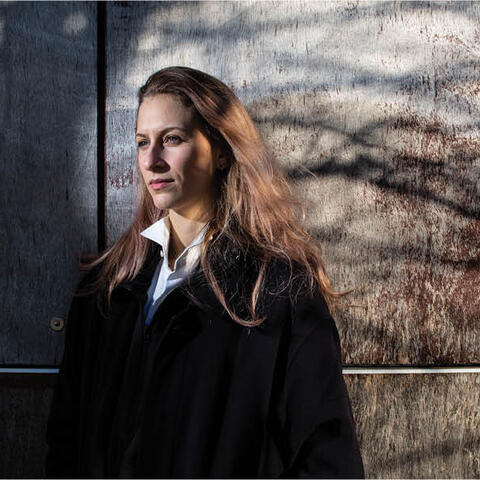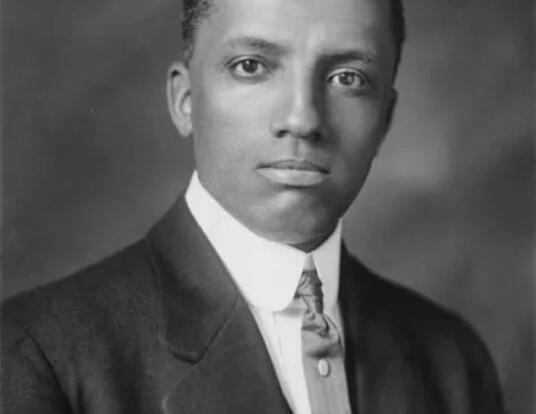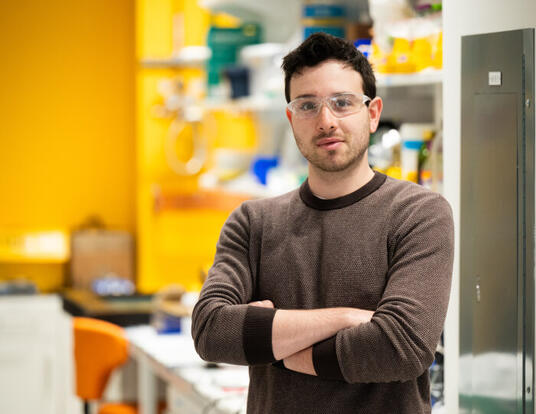Master of Happiness
Tal Ben-Shahar, PhD ’04, trains a new generation of professionals in the art and science of human flourishing

Tal Ben-Shahar, PhD ’04, was 30,000 feet over the Atlantic Ocean, caught in the uncomfortable, sleepless reverie for which airplane seats seem specifically designed. His mind drifted to his work in positive psychology, which had yielded two best-selling books and one of the most popular undergraduate courses in Harvard’s history. He thought of all the fields of knowledge that contribute to happiness—psychology and neuroscience, yes, but also education, philosophy, economics, art, music, literature, and many others—and wondered: Why could students study all those subjects but not one that focused specifically on the goal toward which they all strived?
“There’s a lot we can learn about happiness from psychologists,” Ben-Shahar says. “But the Chinese philosopher Lao Tzu also had a lot to say. So did the Nigerian writer Chinua Achebe and the English novelist Mary Ann Evans as well as scores of historians, scientists, and economists. Why isn’t there an interdisciplinary field of study that brings together all of these thinkers and practitioners, integrates them, and teaches them so that we can better understand, pursue, and attain happiness?”
Before the plane’s wheels hit the ground in New York City, Ben-Shahar had resolved to make the creation of an entirely new field of education—happiness studies—his life’s work. In the eight years since his 2015 transatlantic epiphany, he has launched an online “academy” dedicated to training professionals in the field. Now, in partnership with Centenary University, Ben-Shahar has established the first fully accredited master’s degree program in happiness studies. If he has his way, it won’t be the last.
Beyond ‘Quiet Desperation’
It’s easy to look at Tal Ben-Shahar and imagine that he never had an unhappy day in his life. He greets you with a broad smile and an intense, friendly gaze. His lean frame and confident manner imply the relaxed energy of a top athlete, which Ben-Shahar was in his youth. At the age of 16, he traveled from his home country of Israel to Great Britain, where he trained with world squash champion Jansher Khan, dreaming one day of emulating his mentor’s achievement. Now and then, though, a disconcerting thought flitted through his mind: What would he do if he couldn’t play?
“I thought, ‘Well, I’ll always have squash because when I retire at 30 or 35 after an illustrious career, I will become a coach and build a squash academy,’” Ben-Shahar remembers. “I could not think of my life without the game.”
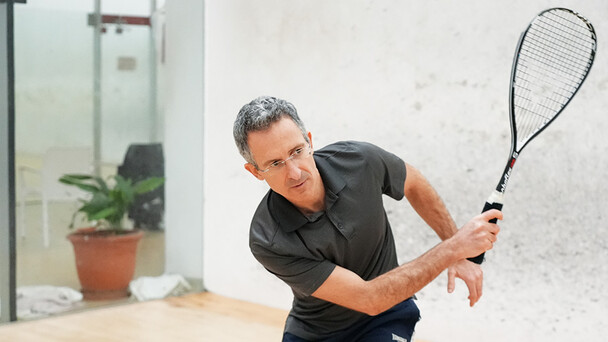
Five years later, while serving in the Israeli military, Ben-Shahar sat in a doctor’s office, his future in jeopardy. The vertebrae in his lower spine were severely misaligned. Surgery was an option, but success was far from guaranteed. He decided to put his professional career on hold and enroll at Harvard, where he’d previously been recruited by squash coach Steve Piltch. Unhappy during much of his first two years of college, Ben-Shahar even considered dropping out. Then he decided to change his course of study from computer science to a joint concentration in philosophy and psychology, a move that altered both his undergraduate trajectory and his life.
“It was one of the best decisions I’ve ever made,” he says. “I flourished in the departments of philosophy and psychology. I learned from faculty like J. Richard Hackman, who studied teamwork, the political philosopher Robert Nozick, and, above all, Philip Stone, who was a pioneer both in positive psychology and in seeing the potential for computers and technology in research. It opened up my world.”
Ben-Shahar enrolled at Harvard Griffin GSAS and worked toward his PhD in organizational behavior, studying both in the Department of Psychology with professors Ellen Langer and Philip J. Stone III, PhD ’60, and at Harvard Business School with professor Joshua Margolis, PhD ’97. But he never published research in an academic journal and never set his sights on a tenure track position; instead, he pursued his love of teaching and his desire to bring positive psychology to a mass audience. He took over his mentor’s undergraduate course, Positive Psychology, which became the largest class at Harvard. (Ben-Shahar’s other course, Psychology of Leadership, ranked third.) His books, including Happier (2007) and Being Happy (2010), became international best sellers.
Of course, it’s important to study painful emotions. But just getting rid of depression or anxiety doesn’t make you happy.
—Tal Ben-Shahar
By the time of Ben-Shahar’s transatlantic trip in 2015, however, happiness seemed very much on the wane—particularly among young people in high-income countries like the United States. He cites a 2019 study published in the Journal of Abnormal Psychology by a team of researchers led by San Diego State University psychology professor Jean Twenge. The group analyzed data from the US National Survey on Drug Use and Health and found that rates of depression, psychological distress, and suicidal thoughts all increased by more than 50 percent among adolescents and young adults between the mid– to late–2000s and 2017. The study’s authors put the lion’s share of the blame for the spike in mental illness on the advent of smartphones and social media. Ben-Shahar agrees about the negative impact of these technologies but says the reasons for widespread unhappiness predate and go beyond them. They stem from society’s misguided focus on “negative” emotions like depression, anger, and hatred to the exclusion of joy, love, strength, and happiness.
“Of course, it’s important to study painful emotions,” he says. “But just getting rid of depression or anxiety doesn’t make you happy. As Henry David Thoreau wrote in the nineteenth century, ‘The mass of men lead lives of quiet desperation.’ You don’t need to be depressed to be unhappy.”
What’s missing from psychology—and society—today, Ben-Shahar says, is a focus on cultivating a sense of meaning and purpose; on savoring, awe, and appreciation—the very things that make life worth living. “This is what the science of happiness focuses on. It’s not in place of, but in addition to what traditional psychology does now,” he says. “With a focus on these elements comes increased levels of well-being, greater resilience, and an expanded capacity to deal with life’s hardships and challenges.”
Real Transformation and Change
In February 2022, Alla Klymenko was preparing for the World Happiness Summit (WOHASU) in Miami, Florida, at which the Ukrainian psychologist was scheduled to give a presentation on how to stay happy in a changing world. Then, just a few days before the conference, her husband called. Russia was on the verge of invading Ukraine. Their family needed to leave the country immediately. They got seats on the last flight to Miami. By the time they landed in the US, the war had started.
“All I could feel inside was anger,” she said during her WOHASU presentation. “It was aggression. And, of course, I have only one desire, just to wake up and understand that it all was a nightmare.”
A citizen of a country devastated by war may seem an odd candidate for a master’s degree in the study of happiness, but when Klymenko found out at WOHASU about the new program at Centenary, she immediately enrolled.
“I am currently going through a difficult period in my life,” she says. “There is a war in my country, and I was forced to leave my home and former life in one day, taking only one suitcase. But the MA in happiness provides unique knowledge. It is about real transformation and change. This knowledge is necessary for people of any age and in any life circumstances.”
The two-year master of happiness studies program at New Jersey’s Centenary University draws students like Klymenko from around the world. Launched in the fall of 2022, the program is an outgrowth of Ben-Shahar’s Happiness Studies Academy, which offers a one-year online certificate and enrolls thousands of students from 85 different countries around the globe.
Ben-Shahar says the Centenary program is grounded in the “science” of happiness. For example, among the many tools to which students are introduced is a gratitude journal To the uninitiated, it may seem an unsophisticated, even naïve suggestion: Take some time each day to reflect on and record one’s blessings, no matter how challenging life may be. But, like most of the practices included in the program, the principles behind the gratitude journal are based on rigorous research. Ben-Shahar points to studies by psychologists Robert Emmons, Michael McCollough, Joann Tsang, and others that indicate keeping a journal and other gratitude practices correlate with increased positive emotions like joy, pleasure, and optimism; lower incidence of toxic emotions like resentment and envy; improved sleep; and even a strengthened immune response.
“The University of Pennsylvania professor Marty Seligman, one of the founders of the field of positive psychology, asked students in his class to write a gratitude letter to someone,” he says. “And then, if possible, he asked them to deliver that letter by reading it to the person. Seligman said that in his 40 years of teaching, he had never encountered anything with greater impact. So, he studied gratitude letters scientifically with the late Christopher Peterson, a professor at the University of Michigan. And they found that it was indeed the most powerful single intervention for happiness and well-being. And so, I bring this practice to my students at Centenary, just as I did when I taught at Harvard.”
There is a war in my country, and I was forced to leave my home and former life in one day, taking only one suitcase. But the MA in happiness provides unique knowledge … necessary for people of any age and in any life circumstances.
—Ukrainian Psychologist and Happiness Studies Student Alla Klymenko
The fact that the master of happiness studies is grounded in science—but not limited to it—is what draws many degree seekers to the program. Student James Schatzle, for instance, had seen life at its worst in his 30 years as an emergency medical technician and firefighter: acute illness and injury, violence, and grief. The president and founder of Team Life, a company that specializes in emergency health training and services, Schatzle was looking for an education that could help build resilience in himself and other healthcare workers while allowing him to reconnect with his own happiness. He considered degrees in business, neuroscience, psychology, and even philosophy, but could never decide on one. He enrolled in the master of happiness studies program because it covered all these topics.
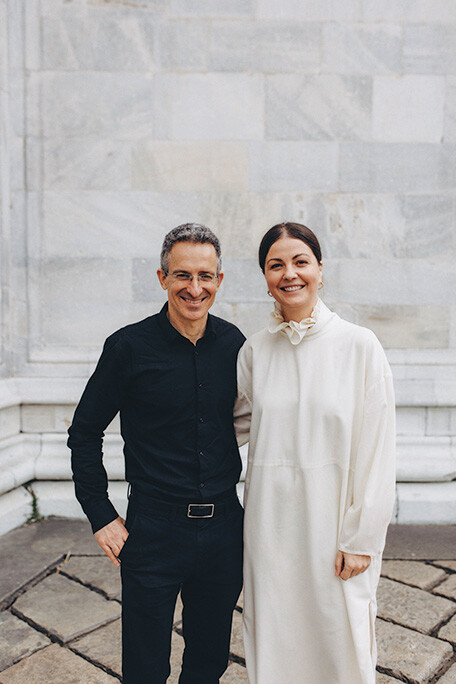
“Our studies are centered on the elements of spiritual, physical, intellectual, relational, and emotional (SPIRE) well-being,” he says. “We are exposed to ancient philosophers like Aristotle, Plato, and Epicurus, and more modern writers like Helen Keller, Will Durant, and many experts in psychology and business. All our lessons are science- and research-based, which I think is the difference between this master’s program and a self-help course. The program has been amazing so far. It’s opened up a whole new world of possibilities for me and my fellow students.”
Joy to the World
As the master in happiness studies enters its second year, Centenary University President Dale Caldwell says the program has already exceeded expectations. Over 90 students enrolled in the first cohort with more coming for the second this fall. With major corporations increasingly offering leadership training built around the core concepts of happiness studies, Caldwell says the university is planning to expand its degree programs in the field. “We’re in the process of creating a bachelor of arts and a doctorate to create a happiness studies academic continuum,” he says.
To ensure that happiness isn’t just for the privileged, Caldwell and Ben-Shahar want to reach out to traditionally underserved populations. Caldwell says he wants to address what he calls urban traumatic stress disorder (UTSD), “the continuous trauma that people experience in these communities.”
“I believe that universities need to do more to share their research expertise in economically challenged local communities in a way that improves the quality of life for residents,” he says. “Our happiness studies program and UTSD research will enable us to offer research-based solutions to the trauma that students, workers, and residents face in poor urban communities. Tal and I therefore hope to speak and offer happiness and emotional well-being training programs in those spaces to help participants move closer to post-traumatic growth.”
Ben-Shahar says that anyone who has responsibility for the productivity and wellness of others—from business leaders to teachers, healthcare professionals, and even parents—can be more effective with happiness training. That’s why he’s working to expand the program in the years ahead, drawing students from a wide range of professions and from around the world. If it does, maybe universities like Harvard will one day have their own department of happiness.
“My hope is that happiness studies will grow and that there will be more programs like Centenary’s,” Ben-Shahar says. “There are psychology departments, neuroscience departments, and philosophy departments in thousands of universities and many different countries. Let’s bring those disciplines together now and build a healthier, happier world.”
Get the Latest Updates
Join Our Newsletter
Subscribe to Colloquy Podcast
Simplecast


